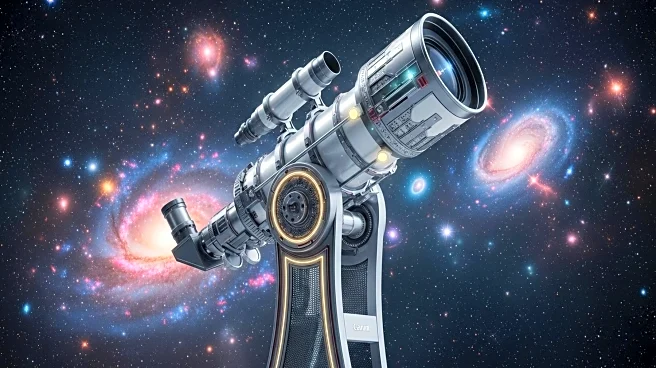What is the story about?
What's Happening?
The Hubble Space Telescope's observing time is allocated through a stringent scientific peer-review process. Astronomers worldwide submit proposals outlining their scientific objectives and the required Hubble instruments. These proposals are reviewed by panels of scientists specializing in various astronomy disciplines. The Time Allocation Committee, comprising chairpersons from these panels, recommends the observing program for the coming year. The final decision rests with the Institute's director. Over the years, more than 40 countries have submitted winning proposals, with the European Space Agency guaranteed 15% of the observing time due to their contributions to Hubble's development and operation.
Why It's Important?
The allocation process ensures that Hubble's limited observing time is used for the most scientifically valuable projects. This rigorous selection process supports groundbreaking research in astronomy, allowing scientists to explore stars, galaxies, and exoplanets with Hubble's unique capabilities. The international collaboration fosters global scientific advancement and strengthens ties between participating countries. The discoveries made through Hubble's observations contribute significantly to our understanding of the universe, influencing future research directions and technological developments in space exploration.
What's Next?
The selected proposals will guide Hubble's observing program for the upcoming year, potentially leading to new discoveries in various fields of astronomy. Researchers will continue to analyze data collected by Hubble, contributing to scientific publications and advancing knowledge in the field. The ongoing collaboration between NASA and the European Space Agency will ensure continued support for Hubble's operations, maintaining its role as a vital tool for astronomical research.

















